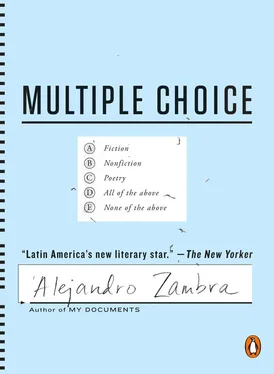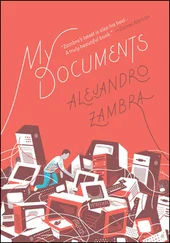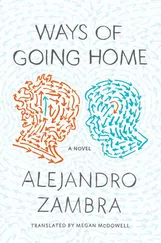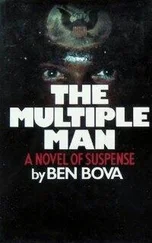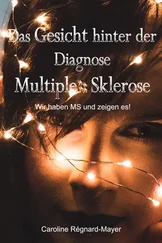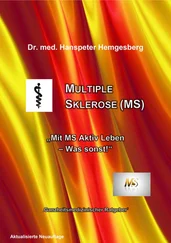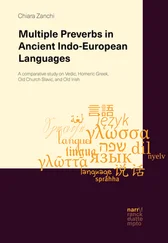I don’t know if my life would make sense without you. I don’t think my life has any meaning other than to be with you.
__________
Everyone gets erased — life consists of meeting people whom first you love and then you erase — but you can’t erase children, you can’t erase parents. I know you’ve tried to erase me, and you couldn’t. I know I have existed, for you, in excess. That I have also existed in absence. When I wasn’t there, when I went weeks without seeing you that year I spent out of Chile, for example: even then I existed too much, because I wasn’t there but my absence was. That’s why I think it is only fair to tell you that I have also tried to erase you. All parents fantasize about those irresponsible lives, about eternal youth, sudden heroism. It’s the distortion of something we used to say, trying to imbue the words with a certain philosophical density: why bring children into a shitty world?
Our parents didn’t think that, they believed in love automatically, they married very young and they were unhappy, but not so much more than we were. They worked a ton and they didn’t even try to associate work with any kind of happiness, so their suffering was more concrete. Plus, they believed in God and they made us believe in God. That’s why we ate our food, that’s why we did our homework, that’s why it was hard for us, at night, to fall asleep: because God was watching us.
But we soon forgot God. We dismissed him as one more character from the stories of our childhood. We didn’t want to be like our parents. We wanted, at most, to have puppies, kittens, and tortoises, even parrots, although the wish to have something as nasty as a parrot has always been incomprehensible to me. We wanted to be children without children, which was the way to remain children forever and thus to blame our parents for everything. What we received when you were born was a little animal that was too alive, and also an excuse, the perfect alibi, a mantra, a multipurpose sentence: I have a son. I was never so motivated as in those first years to ask for raises, to avoid unnecessary commitments, to stop smoking and drinking so much or to smoke and drink like crazy, because in our language the phrase I have a son meant, in a not-so-tacit way, I have a problem . I must admit I knew perfectly well how to add seductive nuances to that phrase: I have a son meant, in some cases, I’m a serious man, I have lived, I’m responsible, I have a history, so go to bed with me . And the next morning, if I didn’t want to stay, or want her to stay for breakfast: Sorry, I have to go, you have to go, I have a son .
Except for those videos your mother got it into her head to show you — I don’t know whether for better or worse — I understand you don’t have any memory of our life when the three of us were together. When you were seven years old you told me that some of your classmates lived with their father and mother and you thought that was boring, because they only had one house. At the time I laughed, I wanted to interpret it literally, but I know there was pain there, a recrimination, though maybe an unconscious one. But in the end, almost all of your classmates had divorced parents. And even so I feel that the abyss separating you and me is deeper and more irrevocable than the abyss that always separates children from their parents.
__________
We never told you why we separated. I’m going to tell you now. The reason for our separation was Cosmo. Yes, Cosmo. It’s a sad story. You have to understand that we were going to separate anyway; for years we’d been looking for reasons, and of course if you hadn’t been born we would have separated much earlier. That afternoon I was furious with you but also unsure: you were barely three years old but you were very self-determined, and when you saw that poor abandoned puppy in the garbage bin on the corner, you picked him up and went right on walking. I told you we couldn’t keep him, but there was no way to make you understand. I was amazed that there was no crying — you were a crier but you didn’t cry then, which in some way revealed to me that you existed, that I couldn’t fool you anymore. You stroked the dog and named him Cosmo, and as we walked home I felt overpowered. I can think of no other word: overpowered. I understood while we were walking that right then a struggle was beginning, and it was one I would lose a thousand times: the struggle that perhaps now, with these words, I’m definitively losing.
I opened the door convinced, willing to respect your decision, and at first your mother agreed. But that night, after some hours of false harmony, the escalation of mutual accusations began, until finally she said: We already have one . I asked how she could possibly talk about you as a pet. She went quiet, and I think I felt the fanfare of triumph, but then, after arguing about many other things that I don’t remember, when we’d already accepted that we would keep Cosmo, I was the one who said exactly the same words, meaning the same thing: we already have one .
Neither your mother nor I were talking about you. We were talking about you, but only to hurt each other through you. We competed for the scepter of who loved you more. For years we had agreed that we did not agree. And that night I left the house. And not long afterward your mother brought Cosmo to my apartment, which ended up being good because, like all children, some weekends you didn’t want to be with your dad, but your mother reminded you that you had to take care of Cosmo. You didn’t come to see me, you came to see Cosmo.
__________
Sometimes I think your mother and I should get together and ask your forgiveness. Or take ayahuasca and ask your forgiveness. But it would be better if they would invent, once and for all, that remote control, so you can fast-forward and rewind, so you can pause, so you can erase some scenes of the life we have given you. You can’t erase us, but maybe there are some erasable people: your sporadic stepmothers, most of your stepfathers, and your teachers. So you can erase all of the bad ones, you can erase everyone who has hurt you. And you can manipulate and distort and freeze the images of us, the ones who have hurt you but whom you can’t erase. So you can watch us in slow motion, or normal or sped up. Or maybe you won’t see us at all, but you’ll know we are there, dragging out ever longer the absurd film of life.
Exercises:
83. The comparison between having a child and having a pet aims to show:
I. The contradictions of a generation that, under the pretext of a pessimistic view of the world, chose to have pets rather than children.
II. The importance of passing laws regarding responsible pet ownership.
III. The importance of passing laws regarding responsible child ownership.
A) I and III
B) I and II
C) I
D) II
E) III
84. A more or less good title for the text you have just read is:
A) “My Generation” (The Who)
B) “Generación de Mierda” (Los Prisioneros)
C) “I Wanna Be Your Dog” (the Stooges)
D) “Father and Son” (the Cat Stevens song that at one point says, “Look at me, I am old, but I’m happy,” but it doesn’t sound like he’s happy; in fact it’s the saddest moment of the whole song)
E) “They Fuck You Up, Your Mum and Dad” (Philip Larkin). Really, almost any line from that poem would work.
85. Ayahuasca is mentioned in the text to:
A) Give the narrative an ethnic touch.
B) There is no concrete reason to talk about ayahuasca. It’s a whim of the author.
C) Encourage drug abuse.
D) Empathize with young people who have maybe already tried marijuana, cocaine, and/or crack and are now debating between going the natural, organic route or turning to chemical shortcuts. At this crossroads, the text intends, wisely, to promote ayahuasca, which is the doorway to self-knowledge.
Читать дальше
